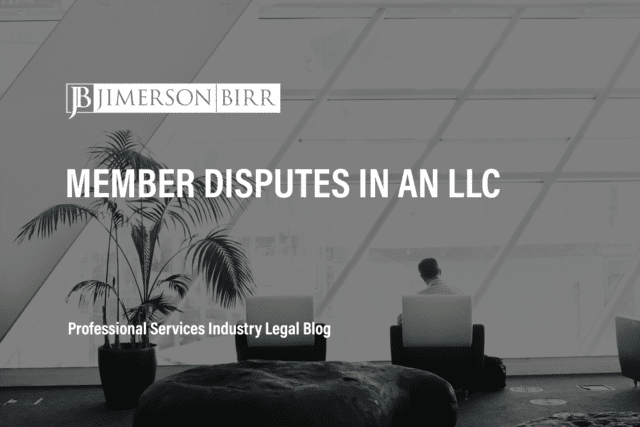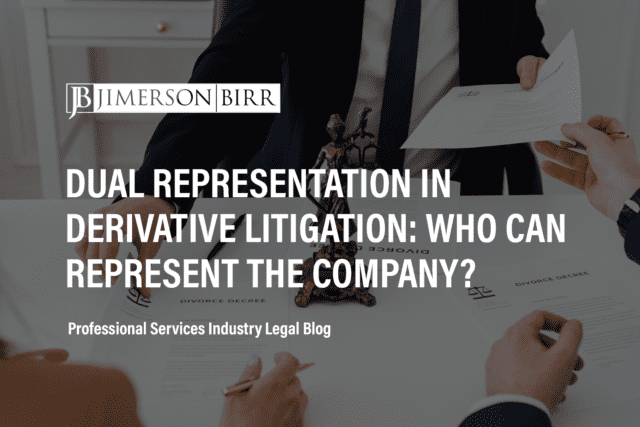What are freeze-out actions?
A freeze-out action, also called “cash-out” action, refers to a legal or strategic maneuver by a controlling shareholder or group of shareholders to force out minority shareholders from a company or limit their influence and control over its operations.
Freeze-out actions may take various forms, including a forced buyout of minority shareholders at an unfair price, exclusion of minority shareholders from critical corporate decisions, or changes in the company’s governing documents or structure to disadvantage minority shareholders.
Need help with a matter related to freeze-out actions? Schedule your consultation today with a top shareholder disputes and derivative litigation attorney.
In Florida, which laws and regulations apply to freeze-out actions?
In Florida, the laws and regulations related to freeze-out actions fall under the Florida Business Corporation Act (FBCA) and the common law principles of fiduciary duties. Under the FBCA, minority shareholders have certain rights and protections, including the right to dissent from specific corporate actions (i.e., mergers and sales of assets) and to seek judicial appraisal of their shares.
However, the FBCA also allows majority shareholders to take specific actions that can limit the rights and influence of minority shareholders, including the ability to amend the company’s articles of incorporation and bylaws and to approve certain corporate actions without the consent of minority shareholders.
In addition to the FBCA, Florida courts have developed common law principles of fiduciary duties that require controlling shareholders and directors to act in the best interests of the company and all shareholders, including minority shareholders. These duties may be violated if a freeze-out action is for improper or unfair reasons, such as to unfairly advantage the controlling shareholders or to harm the interests of minority shareholders.
What are common issues stemming from freeze-out actions that lead to litigation?
Freeze-out actions often lead to litigation due to their controversial nature and potential conflicts of interest between majority and minority shareholders. Some of the common issues that can arise in freeze-out litigation include:
- Breach of fiduciary duty: Majority shareholders and directors owe fiduciary duties to the company and all shareholders, including minority shareholders. If a freeze-out action is taken for improper reasons or in a manner that harms the interests of minority shareholders, it can be a breach of fiduciary duty.
- Unfair pricing: If a freeze-out involves a forced buyout of minority shareholders, the price offered for their shares can be a source of contention. Minority shareholders may argue that the price is unfair and doesn’t reflect the actual value of their shares, leading to disputes over valuation and appraisal.
- Exclusion from decision-making: If a freeze-out action involves limiting the influence or control of minority shareholders over corporate decisions, it can lead to claims of oppression and unfair treatment.
- Violation of minority shareholder rights: Minority shareholders have certain legal rights, such as the right to dissent from certain corporate actions and inspect corporate books and records.
- Improper use of corporate assets: If a freeze-out action involves the inappropriate use of corporate assets, such as using company funds to buy out minority shareholders at an unfair price, it can lead to claims of corporate waste and mismanagement.
When a set of facts is appropriate to meet the requirements giving rise to problems with freeze-out actions, there are many paths a claimant may take. We are value-based attorneys at Jimerson Birr, which means we look at each action with our clients from the point of view of costs and benefits while reducing liability. Then, based on our client’s objectives, we chart a path forward to seek appropriate remedies.
To determine whether your unique situation may necessitate litigation, please contact our office to set up your initial consultation.
What evidence does a plaintiff generally need to file a lawsuit regarding freeze-out actions, and what are common legal defenses to those claims?
To successfully file a lawsuit regarding freeze-out actions, a plaintiff must provide evidence showing that the majority shareholders or controlling parties acted in bad faith, breached their fiduciary duties, or violated the minority shareholder’s legal rights. The following types of evidence may apply in such cases:
- Corporate records and communications: Plaintiff may use corporate records, such as board meeting minutes, emails, and other communications, to demonstrate that the freeze-out action was for improper or unfair reasons.
- Financial statements and valuation reports: If the freeze-out action involved a forced buyout of minority shares, a plaintiff might use financial statements and independent valuation reports to demonstrate that the price offered was unfair and didn’t reflect the actual value of the shares.
- Expert witness testimony: Expert witnesses, such as forensic accountants, may be used to provide testimony on valuation, financial analysis, and other relevant issues.
Common legal defenses to claims of freeze-out actions may include:
- Business judgment rule: Majority shareholders and directors may argue that they acted in good faith and in the best interests of the company and all shareholders and that their actions were protected by the business judgment rule, which presumes that corporate decisions are made in good faith and with due care.
- Lack of minority shareholder rights: Defendants may argue that the freeze-out action was lawful and within their rights as majority shareholders and that minority shareholders don’t have the same rights and protections as majority shareholders.
- Fair price: Defendants may argue that the price offered for the minority shares was fair and reasonable based on independent valuation and other factors.
- No breach of fiduciary duty: Defendants may argue that they didn’t breach their fiduciary duties to the company or minority shareholders and that the freeze-out action was taken for legitimate business reasons.
To see what actions or defenses may be available for your unique situation, please contact our office to set up your initial consultation.
Frequently Asked Questions
- What are some examples of freeze-out actions??
Examples of freeze-out actions include forced buyouts of minority shares, amendments to the company’s articles of incorporation or bylaws that limit minority shareholder rights, and exclusion of minority shareholders from crucial corporate decisions.
- Are freeze-out actions legal?
Freeze-out actions can be legal if they comply with applicable laws and regulations and don’t violate the rights of minority shareholders. Florida law used to look unfavorably towards freeze-out actions, but recent trends in case law seem to support the actions in specific situations.
- Can freeze-out actions be avoided?
Freeze-out actions are avoidable through good corporate governance practices, such as transparent decision-making processes, equitable treatment of all shareholders, and open communication with minority shareholders.
- What should companies and investors do if they’re considering or facing a freeze-out action?
Companies and investors should seek legal counsel and expert advice if they’re considering or facing a freeze-out action to ensure compliance with applicable laws and to protect their rights and interests.
- Can minority shareholders challenge a freeze-out action in court?
Yes, minority shareholders can challenge a freeze-out action in court if they believe that their rights have been violated or that the action was taken for improper or unfair reasons.
Have more questions about a freeze-out action-related situation?
Crucially, this overview of freeze-out actions does not begin to cover all the laws implicated by this issue or the factors that may compel the application of such laws. Every case is unique, and the laws can produce different outcomes depending on the individual circumstances.
Jimerson Birr attorneys guide our clients to help make informed decisions while ensuring their rights are respected and protected. Our lawyers are highly trained and experienced in the nuances of the law, so they can accurately interpret statutes and case law and holistically prepare individuals or companies for their legal endeavors. Through this intense personal investment and advocacy, our lawyers will help resolve the issue’s complicated legal problems efficiently and effectively.
Having a Jimerson Birr attorney on your side means securing a team of seasoned, multi-dimensional, cross-functional legal professionals. Whether it is a transaction, an operational issue, a regulatory challenge, or a contested legal predicament that may require court intervention, we remain a tireless advocate every step of the way. Being a value-added law firm means putting the client at the forefront of everything we do. We use our experience to help our clients navigate even the most complex problems and come out the other side triumphant.
If you want to understand your case, the merits of your claim or defense, potential monetary awards, or the amount of exposure you face, you should speak with a qualified Jimerson Birr lawyer. Our experienced team of attorneys is here to help. Call Jimerson Birr at (904) 389-0050 or use the contact form to schedule a consultation.
Here are some blogs written by JB attorneys that provide more information about freeze-out actions:

We live by our 7 Superior Service Commitments
- Conferring Client-Defined Value
- Efficient and Cost-Effective
- Accessibility
- Delivering an Experience While Delivering Results
- Meaningful and Enduring Partnership
- Exceptional Communication Based Upon Listening
- Accountability to Goals











